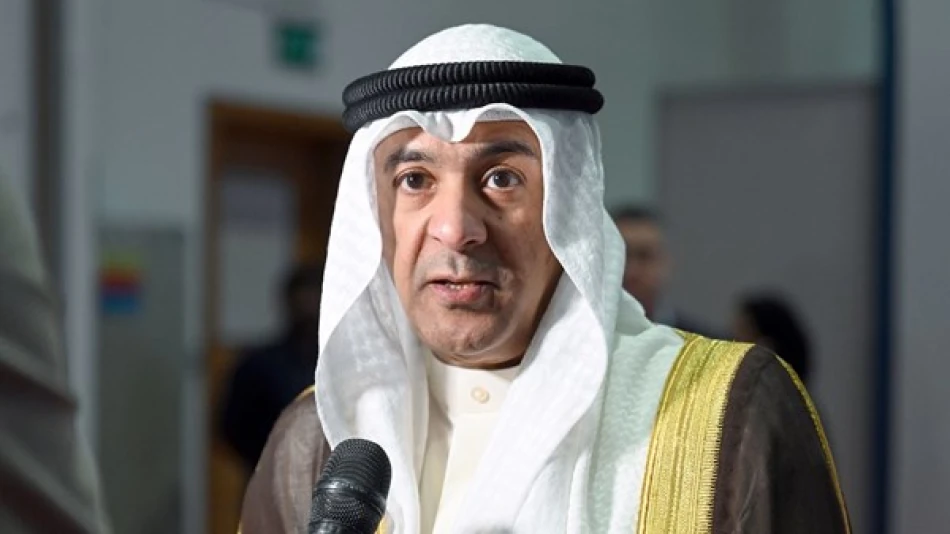
Gulf Cooperation Council Condemns Israeli Strikes on Syria
Gulf States Condemn Israeli Strikes on Syria as Regional Tensions Escalate
The Gulf Cooperation Council has issued its strongest condemnation yet of Israeli military operations in Syria, signaling growing regional concern over escalating conflicts that threaten to destabilize the broader Middle East. Secretary-General Jasem Mohamed Albudaiwi's sharp rebuke reflects the Gulf states' increasingly assertive diplomatic stance as they seek to protect their economic interests and regional influence amid mounting geopolitical tensions.
GCC Takes Firm Diplomatic Stance
On Wednesday, GCC Secretary-General Jasem Mohamed Albudaiwi delivered an uncompromising statement condemning what he termed "flagrant violations" of Syrian sovereignty by Israeli forces. His remarks, reported by the Saudi Press Agency, characterized the ongoing strikes as "irresponsible escalation" that undermines international efforts to stabilize Syria and the broader region.
The statement represents more than routine diplomatic protocol. It signals the Gulf states' growing frustration with military actions that could disrupt their carefully balanced regional strategy, particularly as they pursue economic diversification and maintain complex relationships with both Western allies and regional powers.
Strategic Implications for Regional Stability
Economic Concerns Drive Diplomatic Response
The GCC's forceful response reflects deeper concerns about regional instability's impact on their ambitious economic transformation plans. Gulf states have invested heavily in becoming global business hubs, with initiatives like Saudi Arabia's Vision 2030 and the UAE's diversification strategy requiring sustained regional stability to attract international investment.
Continued military escalation threatens these economic ambitions by creating uncertainty for multinational corporations and disrupting trade routes that Gulf states depend on for their transformation into post-oil economies.
Balancing Act with International Partners
The statement also highlights the Gulf states' delicate diplomatic balancing act. While maintaining strong security partnerships with the United States and other Western allies, they must also navigate relationships with regional powers and demonstrate leadership within the Arab world.
This approach mirrors similar diplomatic strategies employed by other regional powers, such as Turkey's attempts to balance NATO membership with regional independence, or Singapore's careful navigation between US and Chinese interests in Southeast Asia.
Broader Regional Context
The GCC's intervention comes at a critical juncture for Syrian stability. After years of civil war, the country has been experiencing relative calm, with regional powers increasingly focused on reconstruction and normalization. Israeli strikes threaten to reignite tensions just as Arab states, including several GCC members, have been cautiously re-engaging with Damascus.
The timing is particularly significant as it coincides with broader regional realignment efforts, including the recent Saudi-Iranian rapprochement and ongoing attempts to integrate Syria back into the Arab League framework.
International Law and Accountability
Albudaiwi's call for international accountability reflects growing frustration with what Gulf states perceive as selective enforcement of international law. His emphasis on UN Charter principles and international legal frameworks suggests the GCC is positioning itself as a defender of multilateral order at a time when global institutions face increasing challenges.
This stance aligns with similar approaches taken by other middle powers globally, from Canada's emphasis on multilateralism to Australia's advocacy for rules-based international order, as smaller states seek to constrain great power competition through institutional mechanisms.
Looking Forward
The GCC's statement signals a more assertive regional diplomacy that prioritizes stability over traditional alliance considerations. As Gulf states continue their economic transformation and seek greater international influence, they appear increasingly willing to challenge actions that threaten their strategic interests, regardless of the actors involved.
This evolution suggests a maturing regional power bloc that views diplomatic independence as essential to its long-term prosperity and security objectives.
Most Viewed News

 Layla Al Mansoori
Layla Al Mansoori






